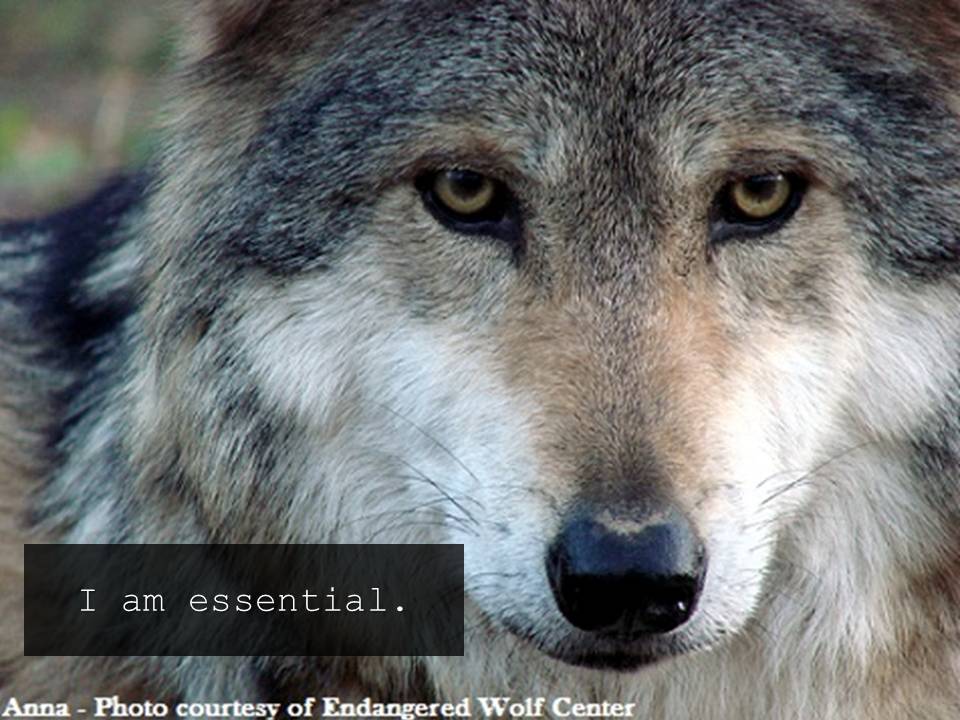26
Feb
Guest Opinion: Valuable wolf now refugee, hostage

By Josh Horning, Wildearth Guardians
When the annual Mexican wolf population count came out earlier this week, one notable Mexican wolf pack was missing for the first time in 20 years.
Ever since 1998, when the 11 founder wolves were first released in southeast Arizona, the Hawk’s Nest Pack has roamed the White Mountains and the volcanic plateau that flanks its high peaks. There, amongst the ponderosa pine savannahs and plentiful elk herds, the pack raised many young, including the first wild-conceived, wild-born Mexican wolf pup.
Today, only one member of this once prolific pack remains, and a single wolf does not a pack make. The reason for the pack’s decline can’t be fully known, but I’m fairly certain the removal of another of its members in November 2016 played a prominent role in the pack’s demise.
That wolf was trapped, removed from the wild and forever banished from his birthplace and his family. Federal animal damage control agents did this for one reason: he killed a cow. His good fortune is that because he is genetically valuable to the overall wolf recovery effort, his life was spared.
Today, instead of enlivening the wild Greater Gila landscape, he’s living out his days in upstate New York in a five-acre captive pen at the Wolf Conservation Center. The center’s staff named him Lighthawk.
In an act of absolute synchronicity, he arrived at the center on the same warm October afternoon that I did. I was there to give a talk about our vision of — and obstacles to — wolf recovery in the American Southwest.
Lighthawk was there both as refugee and hostage. Refugee thanks to a Species Survival Plan that allows genetically vital members of the species, who otherwise might be killed for killing livestock, to live for their breeding value. Hostage to a geopolitical landscape that is hostile to wolf recovery.
Conflicts with livestock are, far and away, the primary justification for wolf removals. Conflicts with the livestock industry are the main reason the Mexican wolf recovery effort has not made more progress. As the program hits its 20th anniversary next month, two-thirds of the nearly 200 wolves removed during the recovery effort have been removed because of the political power of the livestock industry. Many of those wolves were “removed” by killing them.
I’m grateful Lighthawk is still alive, but as I watched him slowly emerge from the crate into his five-acre pen, two thousand miles from his home and family, I could not help but feel a sense of collective failure.
That’s because it’s not just keeping wolves alive that’s critical. It’s keeping them alive in the places they belong. He belonged in the wildlands of the Greater Gila, with his Hawk’s Nest Packmates. Our job is to keep what’s wild, wild. Wildness thrives in a wolf’s presence on the land, not in the ecological simplifications that occur in the absence of wolves.
But the only way we give them that lifeline to the wild is by changing the geopolitical landscape of wolf recovery so that state and federal wildlife agencies charged with managing wolves actually work to help them thrive instead of merely keeping them on life support.
The Mexican gray wolf was first protected under the Endangered Species Act in 1976, the year of our nation’s bicentennial. At that time wolf advocates suspected the road to recovery would be a long and turbulent one. Our experience over the last 20 years has borne that prediction out, and while we’ve come a long way, we still have a long way to go. With only approximately 115 wolves in the wild, we can’t afford to lose more wolves to intolerance and fear.
The Hawk’s Nest Pack that roamed the Greater Gila for 20 years no longer exists. The pack’s progeny still live, however, and I imagine Lighthawk will do his part to sire more young. Their day will come. All New Mexicans must continue the good work of creating stronger social and political conditions to prepare for those wolves’ return to the wild.
This Guest Opinion was published in the Albuquerque Journal



